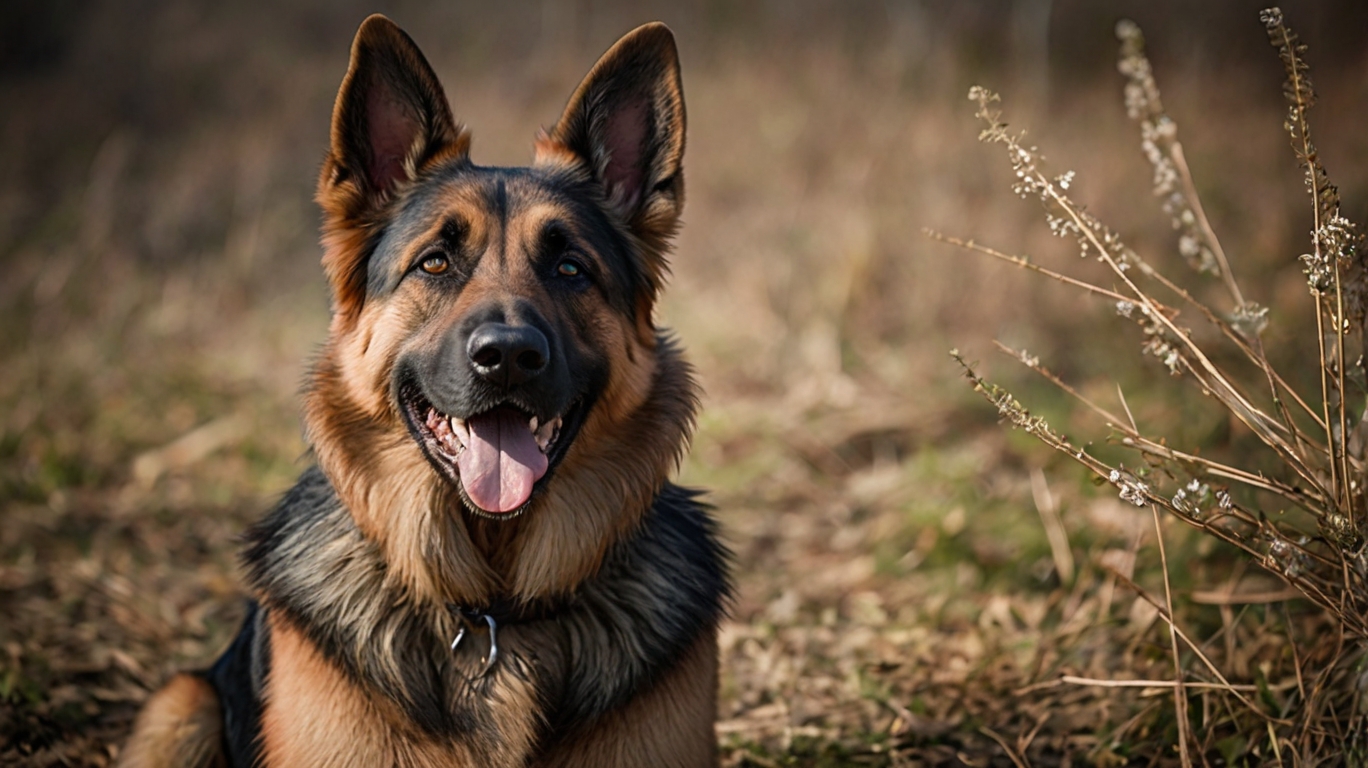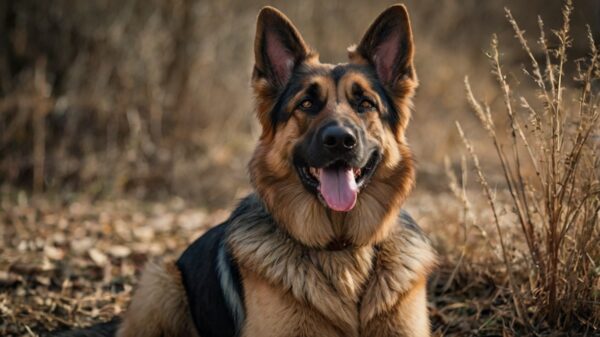The West German Shepherd Dog: What Are They?

West German Shepherd Dog: A Comprehensive Overview
The West German Shepherd Dog is celebrated for its striking appearance, intelligence, and versatility. As a prominent variation of the German Shepherd breed, the West German Shepherd has earned a reputation for being both a reliable working dog and a loyal family companion. This guide delves into the defining characteristics, history, and care requirements of the West German Shepherd Dog, providing a thorough understanding of why this breed is so exceptional.
Distinctive Traits of the West German Shepherd Dog
The West German Shepherd Dog is a breed that stands out for its well-proportioned physique and distinct characteristics. Here’s an in-depth look at what sets this breed apart:
Appearance
One of the most striking features of the West German Shepherd is its impressive appearance. This breed boasts a strong, athletic build with a well-defined, muscular structure. Their back is typically straight, and their limbs are powerful and balanced, contributing to their overall stability and agility.
The coat of the West German Shepherd is dense and double-layered, providing protection from various weather conditions. The breed’s coat can come in several colors, with black and tan being the most common. Other colors include sable and solid black, each adding to the breed’s unique visual appeal. Regular grooming is essential to maintain the health and appearance of their coat, which requires brushing several times a week to manage shedding and prevent matting.
Temperament
The temperament of the West German Shepherd is one of its most notable attributes. These dogs are highly intelligent, confident, and eager to please, making them excellent candidates for various roles, including police work, search and rescue, and military operations. Their high intelligence means they learn quickly, which is beneficial for training and obedience.
West German Shepherds are also known for their loyalty and affection towards their families. They often form strong bonds with their owners and are protective of their loved ones. With proper socialization and training, they can be excellent with children and other pets, making them suitable for family life.
While they are generally serious and focused, West German Shepherds have a playful side that comes out during interactive play and training sessions. Engaging in activities that challenge them mentally and physically helps keep them content and balanced.
Energy Levels
The West German Shepherd is a breed with high energy levels. They thrive on physical activity and require regular exercise to stay healthy and happy. Daily activities should include at least one to two hours of exercise, such as brisk walks, runs, or play sessions. Engaging in structured activities like obedience training or agility courses can also help satisfy their mental and physical needs.
Providing sufficient exercise is crucial for preventing behavioral issues and maintaining the overall well-being of your West German Shepherd. These dogs excel in activities that stimulate both their body and mind, and a lack of exercise can lead to boredom and potential destructive behaviors.
The History Behind the West German Shepherd Dog
The West German Shepherd Dog has a rich and fascinating history. Understanding its origins can provide insight into the breed’s unique characteristics and development:
Origins
The West German Shepherd Dog traces its roots back to the original German Shepherd breed, which was first developed by Max von Stephanitz in Germany during the early 20th century. Von Stephanitz sought to create a versatile working dog with strong, reliable traits, resulting in the German Shepherd as we know it today.
Following World War II, the German Shepherd breed underwent significant changes. Breeders in West Germany worked to refine the breed, focusing on preserving its working capabilities and enhancing its physical attributes. This refinement process led to the development of the West German Shepherd, which emphasizes traditional working traits and characteristics.
For more detailed historical information, you can explore resources from the American Kennel Club or the German Shepherd Dog Club of America.
Development
In the aftermath of the war, West German breeders faced the challenge of restoring the breed’s reputation and functionality. They focused on breeding dogs that retained the original qualities of strength, intelligence, and trainability while also improving certain aspects of the breed’s appearance and health.
The West German Shepherd became a symbol of this effort, representing a breed that remained true to its working roots while adapting to new standards. The emphasis on preserving the breed’s traditional traits while enhancing its overall health and performance has contributed to the West German Shepherd’s enduring popularity and success.

Care and Maintenance for the West German Shepherd Dog
Caring for a West German Shepherd Dog involves several key aspects to ensure their health, well-being, and happiness. Here’s a comprehensive guide to managing their care:
Diet
Providing a balanced and nutritious diet is crucial for the health of your West German Shepherd. Look for high-quality dog food that is appropriate for their age, size, and activity level. The best foods will list meat as the primary ingredient and avoid fillers, artificial additives, and by-products.
Additionally, the diet should include a balance of protein, fats, carbohydrates, and essential vitamins and minerals. Foods that support joint health, such as those containing glucosamine and chondroitin, can be beneficial, especially given the breed’s predisposition to joint issues.
Consult with your veterinarian to determine the most suitable diet for your dog’s specific needs. For recommendations on quality dog foods, you might find helpful reviews and suggestions on websites like Dog Food Advisor and The Spruce Pets.
Exercise
West German Shepherds require regular exercise to stay fit and mentally stimulated. Aim for at least one to two hours of physical activity each day, including walks, runs, and playtime. Engaging in activities like obedience training, agility courses, or fetch can help keep them both physically and mentally challenged.
Incorporate variety into their exercise routine to keep them engaged and prevent boredom. Activities that involve problem-solving or skill-building can be particularly beneficial for this intelligent breed.
For ideas on exercise routines and activities, you can visit The American Kennel Club or Petfinder.
Grooming
The grooming needs of a West German Shepherd include regular brushing to manage shedding and maintain coat health. Brush their coat several times a week to remove loose hair and prevent tangles. During shedding seasons, you may need to increase the frequency of brushing to manage the additional hair.
Regular grooming also includes trimming their nails, cleaning their ears, and brushing their teeth. Maintaining these aspects of grooming helps prevent health issues and keeps your dog comfortable.
Training and Socialization
West German Shepherds are highly trainable and benefit greatly from early socialization and consistent training. Start socializing your puppy at a young age by exposing them to various people, animals, and environments. This helps them become well-adjusted and confident adults.
Use positive reinforcement methods, such as praise and rewards, to encourage good behavior and obedience. Consistent training sessions and mental stimulation are essential for keeping them engaged and preventing behavioral issues.
Enrolling in a puppy class or working with a professional trainer can provide valuable guidance and support as you establish a strong foundation for your dog’s training and socialization. Check out American Kennel Club’s training tips for more information.
Health Considerations
While West German Shepherds are generally healthy, they are prone to certain health conditions due to their size and genetic background. Being aware of these potential issues and working with your veterinarian can help ensure your dog’s well-being:
Hip Dysplasia
Hip dysplasia is a common condition in large breeds, including the West German Shepherd. It occurs when the hip joint does not develop properly, leading to discomfort and mobility issues. Regular exercise and maintaining a healthy weight can help manage this condition. Consult with your veterinarian to monitor and address any signs of hip dysplasia.
Elbow Dysplasia
Elbow dysplasia is another joint condition that can affect the West German Shepherd. It involves abnormal development of the elbow joint, which can lead to arthritis and pain. Proper exercise and a balanced diet can help manage this condition, and early detection is crucial for effective treatment.
Degenerative Myelopathy
Degenerative myelopathy is a progressive spinal condition that can affect the West German Shepherd. It leads to a gradual loss of mobility and coordination. While there is no cure for degenerative myelopathy, supportive care and physical therapy can help maintain your dog’s quality of life.
For more information on health issues and management, resources such as the German Shepherd Dog Club of America can provide valuable insights.
Why Choose the West German Shepherd Dog?
The West German Shepherd Dog is an exceptional breed known for its versatility, intelligence, and loyalty. Whether you need a working dog for various tasks or a loyal companion for your family, the West German Shepherd offers both. Their strong work ethic, combined with their affectionate nature, makes them a remarkable choice for many dog owners.
Choosing a West German Shepherd means bringing home a dog with a rich heritage, remarkable capabilities, and a deep bond with their family. Their ability to excel in various roles, from working jobs to being a loving pet, makes them a valuable addition to any household.
Conclusion
The West German Shepherd Dog stands out as a breed with a rich history, distinctive traits, and versatile abilities. By understanding their needs and characteristics, you can provide the best care and enjoy a rewarding relationship with this remarkable breed. If you’re considering adding a West German Shepherd to your family, be prepared for a loyal, intelligent, and energetic companion who will enrich your life in many ways.





